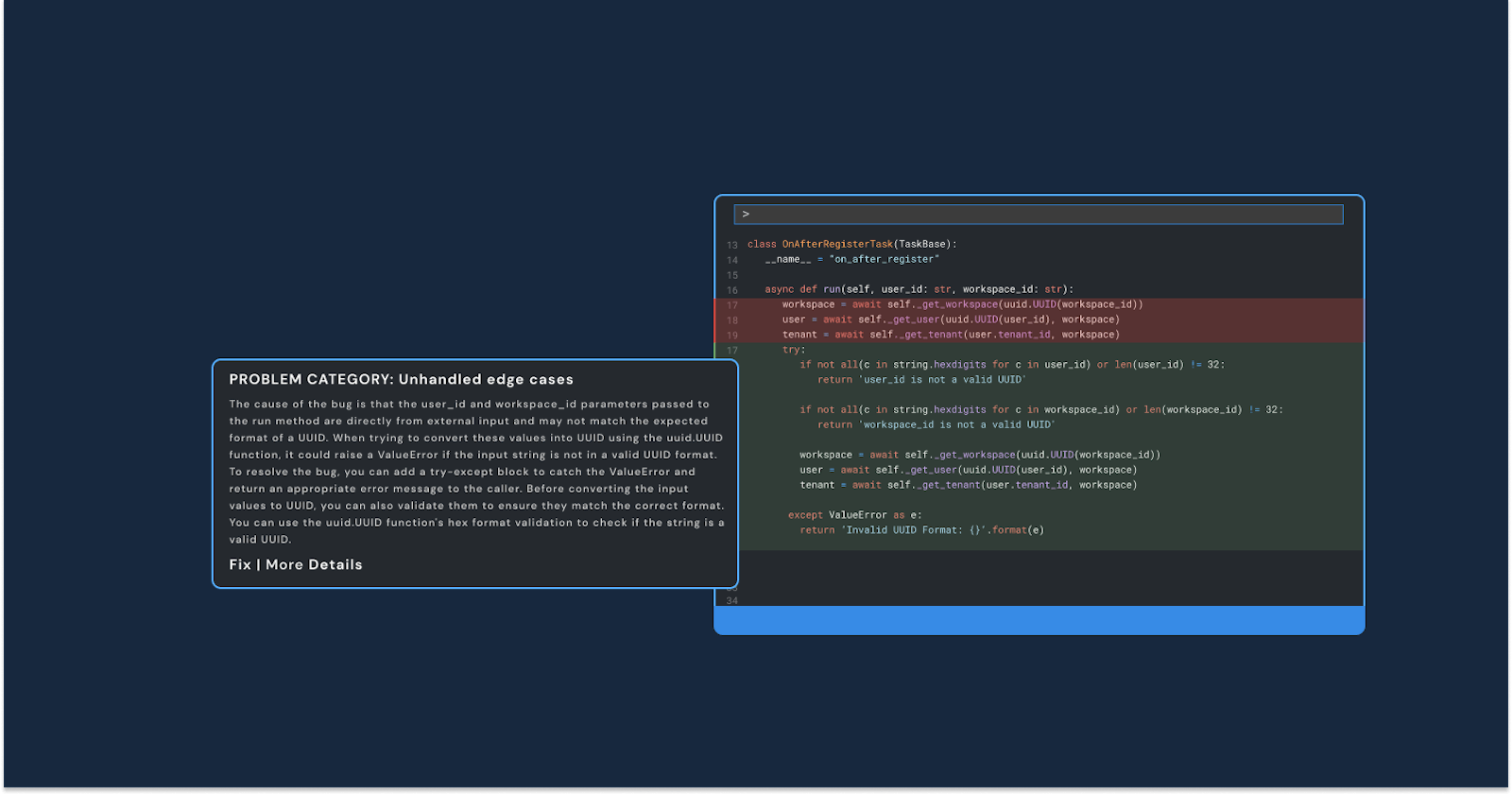As an international student in the United States, I originally had very little plans to stay and work in the States after graduation. Not because I didn't want to, but mostly because I thought navigating all the visa stuff and living far away from my family and friends for an extended period of time seemed overwhelming. However, everything changed when I got introduced to a project at the end of my studies in the US.
During my last semester of college, I was introduced to a small startup (Metabob) working on an AI project to automate debugging and refactoring code. I got introduced to the startup through one of my professors and was delighted when I got an opportunity to contribute to a simple project they needed help with. After this, I continued helping them during my last semester of college and eventually joined them full-time after my graduation. This truly changed all my plans after graduation, which I am forever grateful for. After college, I knew that I had a year to spend in the United States working on topics related to my studies. After the year, there was a lot of ambiguity on how I would manage to stay within the country, as I preferred to stay in the same country where Metabob was based. However, I was one of the lucky ones selected to receive a specialty occupation visa. The specialty occupation always has a lot of applicants for it, but only around 20-30% of applicants get selected through the lottery system and end up receiving the visa.
I am truly grateful for being selected as one of the applicants. During my time after college, I have learned a great amount about AI and have been lucky to celebrate achievements with my co-workers. We recently published our tool as a VSCode extension for individual developers to enable them to analyze Python code with AI. As our ultimate goal is to help them debug Python code, we first run an analysis on the code base using a graph-attention-based neural network that we've trained on millions of code fixes and their surrounding documentation from various data sources (e.g., github, stackoverflow). We then pass the problematic code along with enriched context about it to an LLM to generate context-sensitive descriptions of what the problem is, as well as code recommendations to fix the detected problems.
Regardless of us being in the early stages with the company, I am happy and proud that we are able to provide developers with a tool that helps in debugging. If you are interested in trying it out and providing me feedback, you can install the tool from: try.metabob.com.
